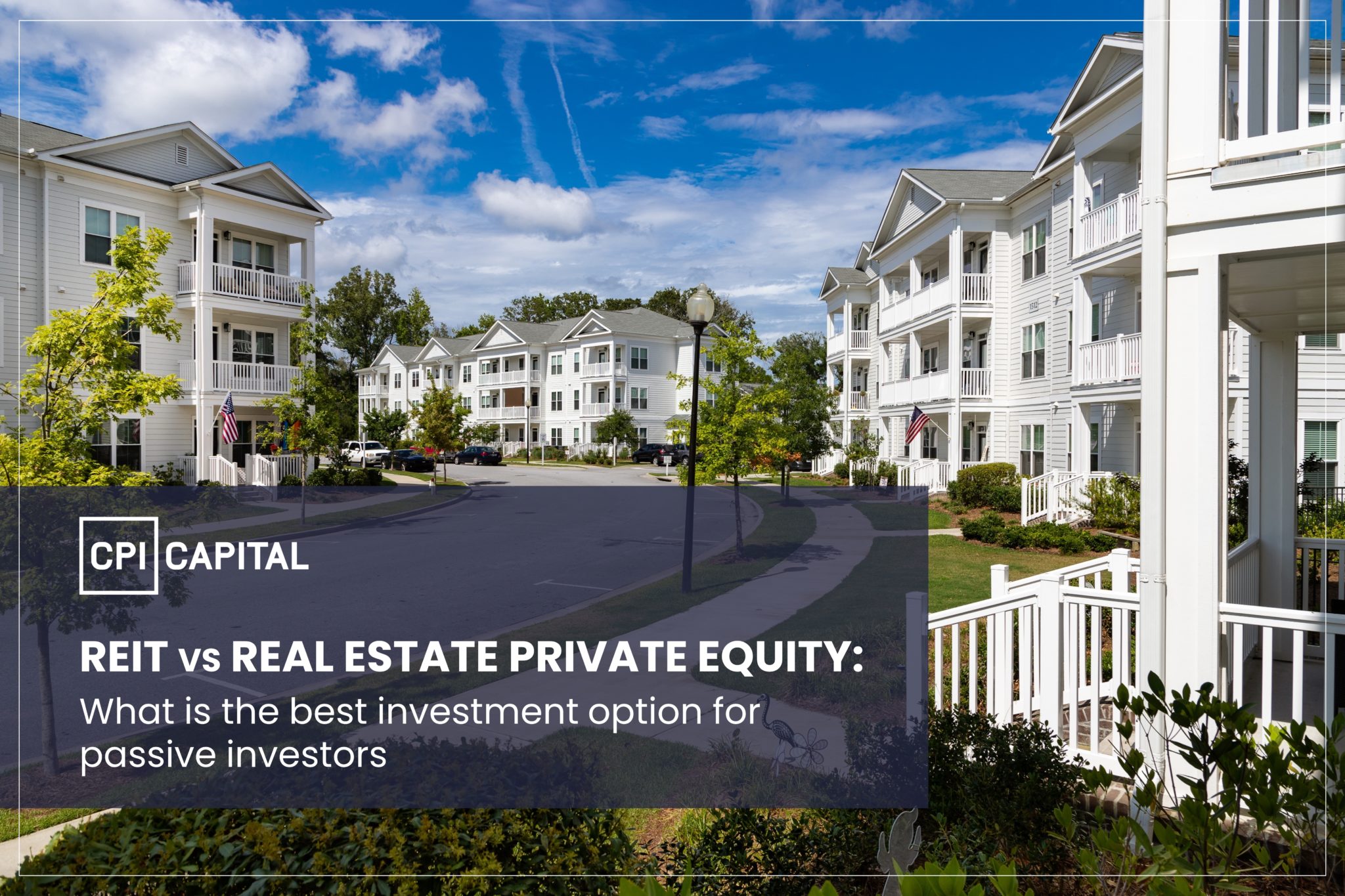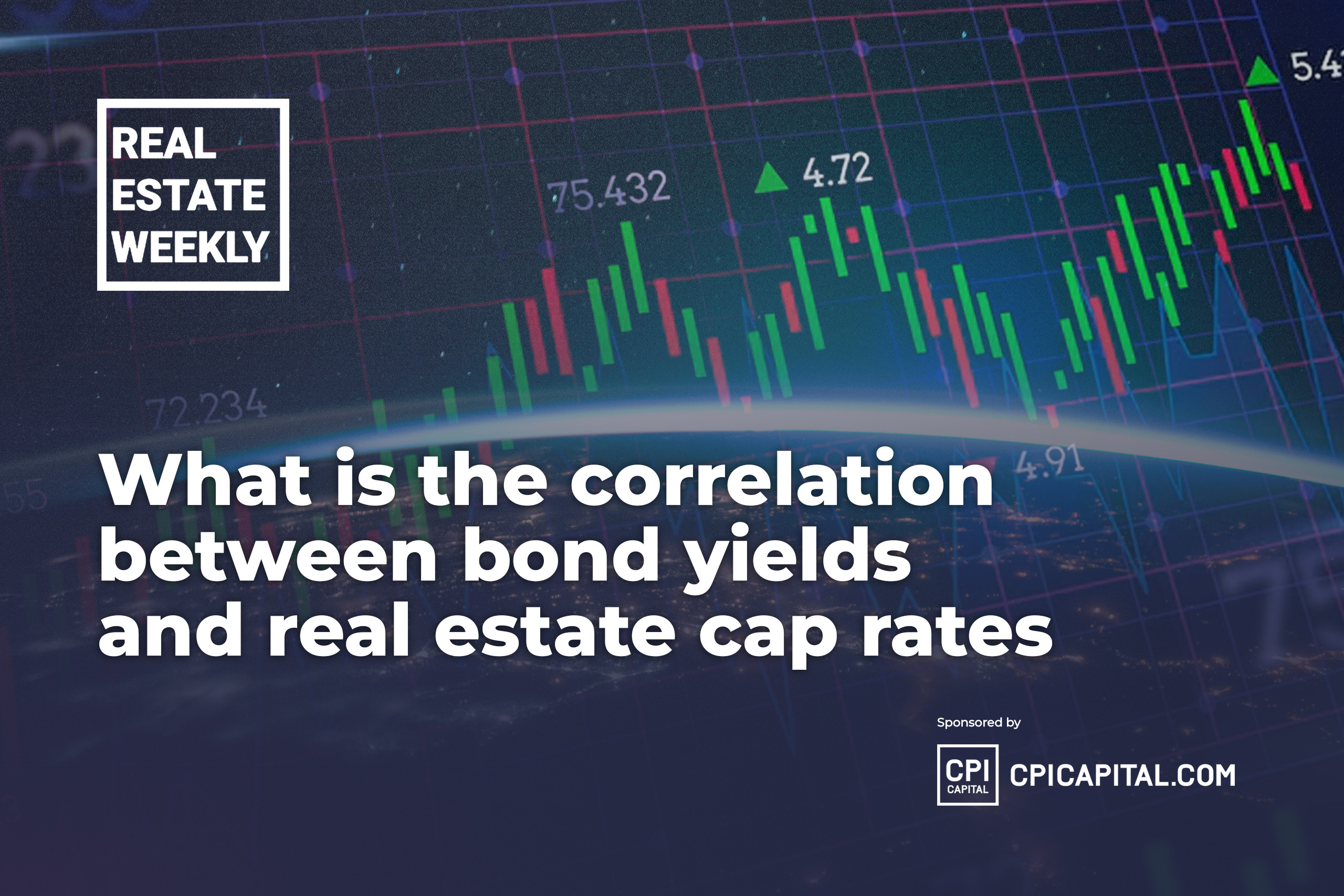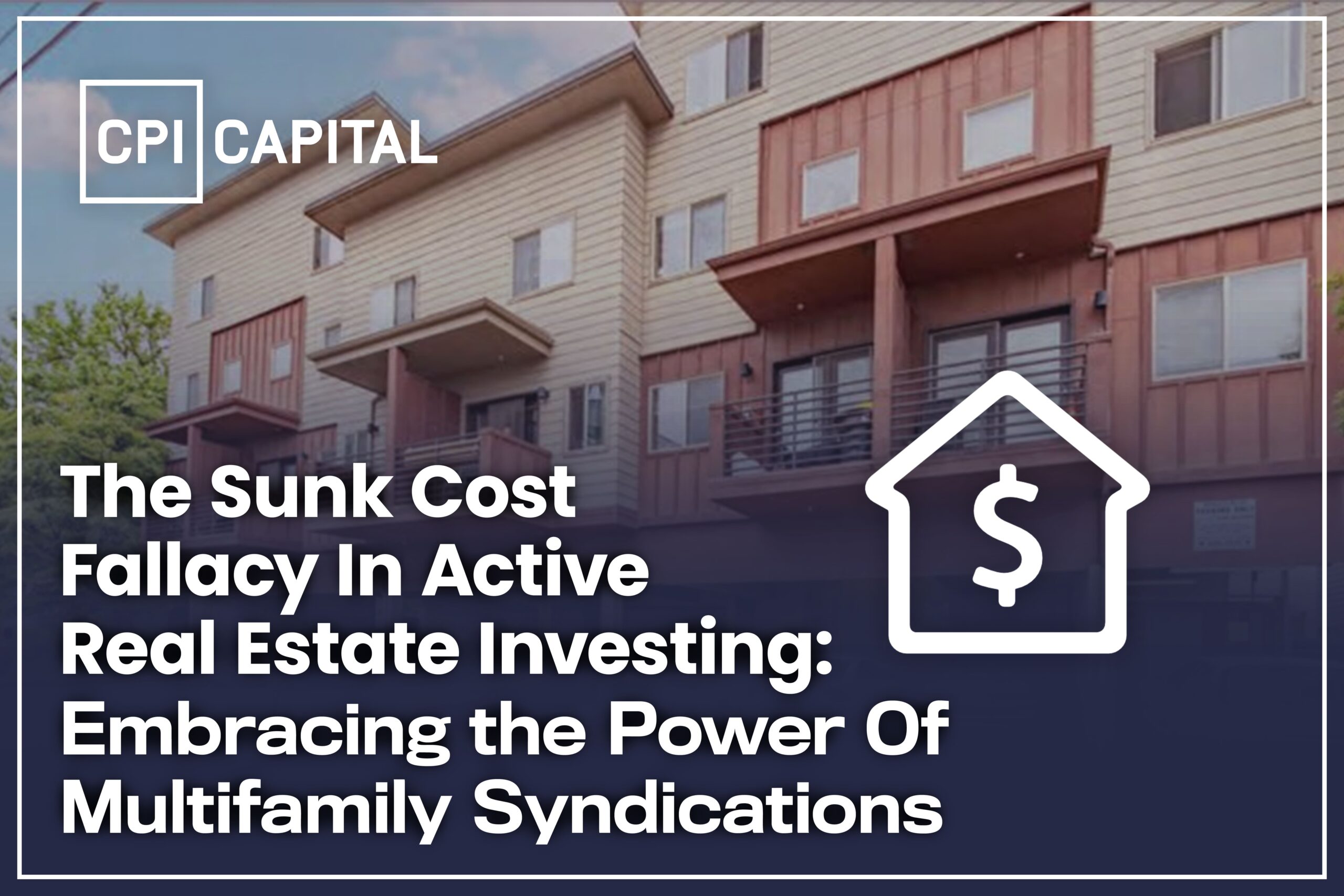
Dear CPI Capital newsletter subscriber,
As we all know, a high percentage of people who want to invest real estate and reap the benefits of passive income don’t want to be a landlord; they far prefer being “passive investors”.
Two primary choices for such investors, therefore, are to invest into a Real Estate Private Equity fund (“REPE”) (or Real Estate Syndication) or a REIT (“Real Estate Investment Trust”).
But what are some of the key differences between REPE funds and REITs, and which one has the most benefits for investors?
Let’s take a look at some of the main differences:
- Ownership: investors in REITs do not own the real estate asset(s), but rather shares in the company which owns such assets.
However, investors in REPE funds invest directly in a particular property and own a percentage of an LLC or units of a Limited Partnership which will own the property; in other words, they have direct ownership of the real estate asset;
- Risk factors: these vary between REPE funds and REITs. With REPE funds there will be a clear business plan setting out the investment strategy, including financials, so that investors can undertake a risk assessment and fully evaluate the actual property before investing.
REPE also gives investors direct equity in a physical asset, allowing some hedge against any loss of value whereas, if the market value of the REIT falls, there is no equity to fall back on;
- Accessibility and capital requirements: many REITS are publicly listed and it’s possible for any investors to buy shares quickly through an authorized broker. Access to REPE funds until recently was more difficult and, often, generally limited to accredited investors.
Furthermore, only a certain number of investors was required, who may be subject to investment minimum amounts ranging from US$ 10,000-100,000. The time frame to actually make an investment in a REPE is also likely to be longer;
- Taxation benefits: REPE funds distribute income before depreciation, allowing an investor who is investing directly in a property to significantly reduce any tax burden through claiming asset depreciation. In cases with accelerated depreciation, such tax benefits can be substantial.
As buying shares in a REIT is investing in a company and not directly into the real estate, the tax benefits are not as attractive. Depreciation can be claimed but is factored in before dividends are paid and there are no other tax breaks. Furthermore, dividends are taxed as ordinary income, which may increase the size of a tax bill;
- Liquidity: just as when investing in other stocks, shares in REITs are relatively liquid
and investors can buy or sell at any time.
On the other hand, with REPE funds, investors are investing directly into a portion of real property and the business plan often includes holding the asset for a certain amount of time. Previously, this would have meant that such investments may have been relatively illiquid.
However, things have changed and CPI Capital, in partnership with TokenFunder, is utilizing blockchain technology and tokenization of real estate to allow for liquidity of investments;
- Investment returns: over the last four decades, total returns for exchange-traded U.S. equity REITs averaged 12.87% per year
Whilst each project is different, for multi-family REPE funds, target returns may be closer to 20% after factoring in both cash flow and profits from the sale of the asset;
- Number of assets invested in: a REIT typically holds a portfolio of properties across multiple markets, possibly focusing on certain asset classes, such as apartment buildings, offices or shopping malls.
However, REPE funds usually invest in a single property in a single market and investors will have all the detailed information they need about the chosen property.
We at CPI Capital believe passive investing in REPE funds provides a more reliable stream of income, as well as offering the various added benefits which come from actual property ownership. Having said this, some of our clients do make investments in both REPE and REITS to achieve a balanced real estate portfolio.
In any event, our focus will continue to be on Private Equity investment as we are confident that, with our extensive real estate experience and knowledge, we will be able to deliver the returns our passive investors expect—and without any of the headaches of direct real estate ownership!
Yours sincerely,
– Ava Benesocky
CEO, Co-Founder CPI Capital
– August Biniaz
Chief Strategy Officer, Co-Founder CPI Capital

Ready to build true wealth for your family?
It all starts with passive income. Apply to join the CPI Capital Investor Club.
Search
Recommended

What is the Correlation Between Bond Yields and Real Estate Cap Rates?
Dear valued existing investors and future investors, Welcome to CPI Capital's regular news...

The Sunk Cost Fallacy In Active Real Estate Investing: Embracing The Power of Multifamily Syndications
Dear valued existing investors and future investors, Welcome to this week's CPI Capital's news...

Key Metrics Every Multifamily Investor Needs to Know
Dear valued existing investors and future investors, Welcome once again to this week’s CPI...


